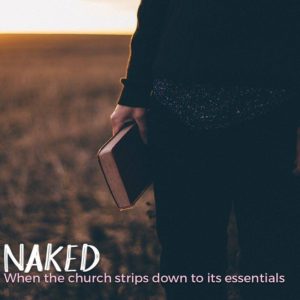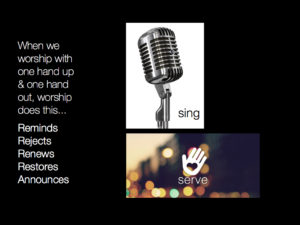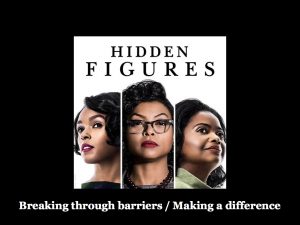by Jonathan Manafo | Oct 10, 2017 | Sunday Conversations
It is Thanksgiving weekend…a Holiday that I think we get right.

Not all Canadian Holidays are created equal. I love every day off I get, don’t get me wrong, but there’s something about taking a day off to be grateful that so resonates with our faith, and is good for our soul.
Of course we are smart enough to know that being grateful needs to be an every day thing.
RW Emerson once said, “Cultivate the habit of being grateful for every good thing that comes to you, and to give thanks continuously…”
Some of us don’t care how we got this holiday, only that we have it. (like the other stat holidays we enjoy)
– Indigenous peoples paused for thanksgiving well before Euro settlers every arrived
– It became common in the 1870s and official in 1957
– It’s always been connected to and associated with being grateful for what we received…harvested.
The question we’d like to get at is: why do so many of us have a hard time being grateful?
– Because we compare what we have verses what we don’t have.
– We start asking…Why me? Why not me? Why them?
– We compare incomes, stuff, toys, experiences, and feel like we get the raw end of the deal.
Think about this: We all know someone who is rich and unhappy, and someone who is far from rich, yet very happy. And we’ve figured out that it’s directly connected to how grateful or ungrateful they are.
A few places in scripture we can go to that challenges us on the importance of being grateful.
Phil 4:11-13
I have learned how to be content with whatever I have. I know how to live on almost nothing or with everything. I have learned the secret of living in every situation, whether it is with a full stomach or empty, with plenty or little. For I can do everything through Christ, who gives me strength.
Colossians 4:2
Devote yourselves to prayer with an alert mind and a thankful heart.
Heb 13:5-6
Keep your lives free from the love of money and be content with what you have, because God has said, “Never will I leave you; never will I forsake you.” So we say with confidence, “The Lord is my helper; I will not be afraid. What can mere mortals do to me?”
Thomas Merton said something that directly addresses these verses:
“If we are too eager to have everything, we will almost certainly miss even the one thing we need.”
Let’s look at some helpful tips or ways that we can become more grateful or develop the posture of gratefulness:
9 habits/steps of Grateful People

Spend time with loved ones
Know the value of the little things
Volunteer
Get moving (be active)
Intentionally choose gratitude
Count your blessings / Not what you don’t have
Embrace humility / Embrace the struggle
Open your eyes to those with less
Find Gratitude in every situation
Gratefulness is a posture…a privilege…a position we take. We choose it. We live it. We sit in the seat that says, “I’m grateful for what I have, for who is in my life, for a God who is with me everywhere that I go.
“We are hopeful, only to the degree that we are grateful”
So let’s be grateful!!!
by Jonathan Manafo | Oct 3, 2017 | Sunday Conversations
This past week I lost something very important to me. What you might ask is that? My notebook. Not just any notebook, but my everyday, everything, notebook. It’s also happens to be a Moleskine notebook (don’t worry, I only purchase them when they’re on sale). Why was this a big deal? Because I have everything in that notebook, project notes, ideas for future talks, weekly to-do lists, notes from important meetings, etc. I don’t wanna lose those things. My memory isn’t good enough for me to afford losing that information. Just so you know, this story does end well, I found it at chapters. They had it behind the counter. (Phew) Luckily they didn’t restock it and sell it to someone else. (now that would be a fun story)
very important to me. What you might ask is that? My notebook. Not just any notebook, but my everyday, everything, notebook. It’s also happens to be a Moleskine notebook (don’t worry, I only purchase them when they’re on sale). Why was this a big deal? Because I have everything in that notebook, project notes, ideas for future talks, weekly to-do lists, notes from important meetings, etc. I don’t wanna lose those things. My memory isn’t good enough for me to afford losing that information. Just so you know, this story does end well, I found it at chapters. They had it behind the counter. (Phew) Luckily they didn’t restock it and sell it to someone else. (now that would be a fun story)
If you’ve followed along thus far, you know that we’ve been talking about stripping down to our essentials as a church. Taking off the layers that are (or may be) less important, and focus on the things that have kept us going since the church launched, in and around the first century.
One of the things we consider essential around here, because we are part of a long and rich (and messy) church tradition, are the notes, records, writings, we have about faith, God, people figuring out why and how to follow him, and of course Jesus. We also value the conversations that proceed from those notes.
We’ve talked ab out the TABLE, and about WORSHIP (sing & serve). Today we talk about TEACHING (from the scriptures).
out the TABLE, and about WORSHIP (sing & serve). Today we talk about TEACHING (from the scriptures).
Le’s phrase it like this: What conversation, message, theme, emerges fromthe notes, records, writings that we have in the scriptures?
By using this language, we’re not making light of the scriptures. No. It’s the opposite, these notes are treasured…not because the paper they’re on is special, or because the writers were holy in some way, but because they lead us to Jesus, who is the clearest picture of who God is.
Now, why do we teach these scriptures, and keep the notes and the conversation floating around?
1) Teaching the story of God, that leads to Jesus, assures us of Jesus’ presence…
In Matthew 28, the great commission, we read these words… “…go and make disciples of all nations, baptizing them in the name of the Father and of the Son and of the Holy Spirit, 20 and teaching them to obey everything I have commanded you. And surely I am with you always, to the very end of the age.”
These final words from Jesus do a few things:
– talk about the importance of discipleship
– reminds us about the Trinity
– urge us to TEACH & FOLLOW Jesus’ commands
– assure us that as we do this, disciple, baptize, teach & obey, Jesus will be present.
God is with those who converse about him. Too Simple? Maybe. Profound? Definitely.
2) We teach the scriptures because they are practical and useful…
Paul wrote these words to Timothy about why we teach and converse about the scriptures… “You, however, know all about my teaching, my way of life, my purpose, faith, patience, love, endurance, 11 persecutions, sufferings…Yet the Lord rescued me from all of them…. as for you, continue in what you have learned and have become convinced of, because you know those from whom you learned it, 15 and how from infancy you have known the Holy Scriptures, which are able to make you wise for salvation through faith in Christ Jesus.”
16 All Scripture is God-breathed and is useful for teaching, rebuking, correcting and training in righteousness, 17 so that the servant of God may be thoroughly equipped for every good work.
Paul see’s teaching as something we say and something we show. Show & tell. Never just tell!
Paul’s main idea here is verse 16. All Scripture is inspired by God (that’s what ‘breathed’ means). This doesn’t mean that the writers were controlled and under the influence of some trance when they wrote. This does mean that God breathed life into these stories because God was always the main character, coming in and out of the scenes of the narrative.
Paul is at least saying that we shouldn’t approach the scripture like some approach tourist spots or historical sites – “That’s nice” “Wow, what a beautiful structure” “So glad we visited this place”.
The scriptures are alive, because the God of whom the writer’s spoke about was and is alive.
Paul doesn’t end there. He goes on to say that the scriptures are useful.
– for teaching, rebuking, correcting, training in right living.
– being acquainted with the scriptures will equip us to do good work.
Now, we have to be careful that this is not all we see it as, that said, the scriptures are and should be used for this. Practical, Useful, Helpful.
Our Canadian friend, Bruxy, said this recently, “The gospel is not just the message that people get saved by, it Is the message that saved people live by.”
3) We teach the scriptures because it is the story that leads us to Jesus…
Paul says this in Colossians 1…
I have become its (the church’s) servant by the commission God gave me to present to you the word of God in its fullness— 26 the mystery that has been kept hidden for ages and generations, but is now disclosed to the Lord’s people. 27 To them God has chosen to make known among the Gentiles the glorious riches of this mystery, which is Christ in you, the hope of glory. 28 He is the one we proclaim, admonishing and teaching everyone with all wisdom, so that we may present everyone fully mature in Christ.
Paul is passionately committed to teaching the WORD of GOD. But for Paul, the WORD of God is JESUS.
(John 5:39) You study the Scriptures diligently because you think that in them you have eternal life. These are the very Scriptures that testify about me…
(John 1:14)The Word became flesh and made his dwelling among us.
We get caught up in the book, and forget that the purpose of the book is to introduce us to its main character.
How many Christians have gotten in trouble by focusing more on the Bible, and less on Jesus?
Who is the author and finisher of our faith (Heb 12)? The Bible or Jesus? JESUS!
Think about these quotes from Brian Zhand,
“I believe in the infallible, inerrant word of God. And his name is Jesus.”
“When we speak of the ‘word of God’, Christians should think of Jesus first and the bible second”
Paul says a few other things in Colossians:
– The word of God is Christ
– Christ, the hope of glory, is in us
– We proclaim Jesus, teach about Jesus, help people grow and mature in Jesus
For this reason, and many others, teaching (the scriptures and the gospel) is an essential of what it means to be the church!
TAKE HOME:
So…why do we continue to teach and continue to keep this conversation going?
– To immerse ourselves in the way of Jesus.
– To slowly, but surely be defined by the values and teaching of Jesus.
– To live out the ways of Jesus.
May we continue the conversation, share the notes, live out the gospel.
– – – – – – – – – – – – – – – – – –
Questions to consider…
Do we value the notes (that have been passed on to us)?
Do we continue the conversation (we have been invited to be a part of)?
Are we talking about, and listening to, Jesus, the WORD of the GOD?
by Jonathan Manafo | Sep 27, 2017 | Sunday Conversations
 In the early 90’s (ya, ya, I’m dating myself) I really started to get into the music of Eric Clapton. He had been a guitar legend for many years. But in the 90s he came out with a record titled ‘unplugged’. Clapton took a bunch of his songs, stripped them down, and performed them acoustically. Tears in heaven might’ve been my favourite, plus a few other blues tunes he did. This was part of a wider movement of artists who began recording and performing their songs with less tracks, less effects, less noise, and simple arrangements and instrumentation. Some people might say that when we hear a song ‘unplugged’ we get to the heart of the song a little more. It allows the song to breathe.
In the early 90’s (ya, ya, I’m dating myself) I really started to get into the music of Eric Clapton. He had been a guitar legend for many years. But in the 90s he came out with a record titled ‘unplugged’. Clapton took a bunch of his songs, stripped them down, and performed them acoustically. Tears in heaven might’ve been my favourite, plus a few other blues tunes he did. This was part of a wider movement of artists who began recording and performing their songs with less tracks, less effects, less noise, and simple arrangements and instrumentation. Some people might say that when we hear a song ‘unplugged’ we get to the heart of the song a little more. It allows the song to breathe.
Last week we started a series that could’ve easily been called UNPLUGGED. Instead we called it NAKED. A little more edgy, I know, but it really communicates something. We want to strip down to what’s important, to the heart of what the church is, and also what has brought the church to this point in history.
 Last week we talked about The TABLE. The communion table, Eucharist. We were reminded that this table is set before us to remember Jesus sacrifice, but it’s also here to be an example to the world of a better way, a way of unity, and grace, and hospitality. (check out our recap online)
Last week we talked about The TABLE. The communion table, Eucharist. We were reminded that this table is set before us to remember Jesus sacrifice, but it’s also here to be an example to the world of a better way, a way of unity, and grace, and hospitality. (check out our recap online)
This week we talk about another essential, using another image. Well, two images if you will – a microphone and a towel. These two things together help us understand why worship is essential to the church’s past, present and future.
What do I mean when I say worship? Well…it means different things for different people.
- for some it’s tradition
- for some it’s music, singing, and creative production
- for some it’s liturgy
- for some it’s all about the TABLE
- for some it’s not about any of these things, instead it’s only about what they do in the world, every day, to make difference in the things they touch.
Honestly, it’s all these things and more.
Know this…
To worship is human
To give something worth is at the core of how we make decisions
To acknowledge that you value or love something is at the heart of our personalities and humanness
You might say it like this, “You are what you love” “You are what you value” “You are what you worship”
Think about this: If we are what we love and we love what we worship, than we are what we worship! That might change the conversation for you?
Through out biblical history and through out church history, worship has been and continues to be, an essential. Worship happens through song, liturgy, prayers, action, serving, hospitality, and really through everything we do. At its core, worship is what we give value to, what we view as God in our life, who or what we bow to or give our time to or invest our money in.
We get started in the OT with a certain kind of language or narrative.
There is a constant comparison of GOD vs gods. Will you worship Yahweh, the living God or some small ‘g’ god that is as good as dead? The language is plain and simple, black and white at times.
God, Israel’s God, is ALIVE. Other gods are, well, dead. ONE can help, heal, deliver, protect, provide, be present, etc. The ‘others’…they can’t do any of those things.
We get one of our first glimpses into this, in Exodus 20, (part of the 10 commandments) You will have no other God before me. Exodus 34:14 says this, “Do not worship any other god, for the Lord, whose name is Jealous, is a jealous God.” Jealous is a relational term. We see this kind of language in many of the prophets. (Almost like God is telling Israel to be a one man woman)
What we also read from the OT writers is a comparison of a God who made us and god(s) who we made. See the difference? One made us, the others were made by us!
Another prominent theme in the OT is that worship is not just about what you say, or sing or read or pray, but where your heart is found.
“These people come near to me with their mouth
and honor me with their lips,
but their hearts are far from me.
Their worship of me
is based on merely human rules they have been taught. (Isa 29)
Not just lips, but life / Not just words, but heart / Not just acknowledgement, but action
So even early in the biblical narrative, worship is not only important, but it’s bigger and broader than most people understand it to be.
Worship asks us the big question? What do you value, what do you deem worthy of your attention, your feelings, your time, your heart? What or who is it that you love? Because we are what we love – and therefore, we are what we worship. (this is a discussion all on it’s own)
The N.T. story around worship…
As usual, Jesus expands, and brings to completion, what the O.T. started. We’re only going to look at one place, Mark 12. Jesus is asked by Pharisees and Religious teachers, what is the most important of all the commandments (613 of them)? This is how he responds…
(quoting both Deuteronomy & Leviticus)
“The most important one,” answered Jesus, “is this: ‘Hear, O Israel: The Lord our God, the Lord is one. Love the Lord your God with all your heart and with all your soul and with all your mind and with all your strength.’The second is this: ‘Love your neighbour as yourself.’ There is no commandment greater than these.” (29-31)
Have you ever thought about what you’d do if your home as on fire? What would you take, if you could take anything? What would you grab as you escaped?
- children (of course)
- wallet, computer, passport, will (wise)
- your favourite watch (if you have time)
- one guitar…or two…or 3 (I leave one my the entrance in case)
These things are more valuable than furniture, TVs and clothing. Right? By identifying those things, you discover where you priorities lie.
This question Jesus is asked, even though it’s about commandments or laws, is really about worship.
3 things about this text that helps us understand worship a little more…
- Acknowledge God
- Love God
- Love others
Jesus says, essentially, I’m going unplug the loud speakers and the remove the layers. I’m going to strip away the stuff that doesn’t mean as much. Here’s the bottom line. Worship is about recognizing who God is, Loving him, and loving the people he created.
If it ever becomes about more or less than that, we have it wrong.
Jesus teaches us the posture of worship:
ONE hand UP
ONE hand OUT
Worship is never about a place (church building) and position or pizzazz, it’s about posture!
Remember…if we are what we love and we love what we worship, than we are what we worship!
TAKE HOME:
So why do we sing songs then? Together? in gatherings all around the world? Well, there is some biblical evidence and inspiration for that, but let’s look at a cultural reason.
If you’ve watched the movie La La Land, you may have noticed that there is one song that is prominent through out. The movie starts with a broadway-esque version, loud, lots of people, lots of instruments. However, through out the movie, you here many different versions of the same song. Soft, slow, simple, jazz trio, just piano, just melody. Why? The writers are bringing us back to the theme of the movie. The song, repeated, reminds the audience of the main story, intertwined, weaved through, the many scenes of the movie.
That’s why we sing songs on Sunday. They bring us back to the story of Jesus. And give us a vehicle/instrument to worship – to say, God, you’re my God, and I won’t let other ‘g’ods take my attention.
But of course, worship doesn’t only happen in song, but with life and action and everyday stuff. Sing to God & Serve your neighbour. That’s the fulness of what it means to worship!

Worship…
- Reflects (the story of Jesus)
- Reminds (us of his love and grace)
- Rejects (the ‘g’ods in our world)
- Renews (our hearts and minds)
- Restores (our brokenness)
- Announces (the gospel story, the biblical narrative that leads us to Jesus, who said, to Love God fully, and Love our neighbour as we love ourself)
by Jonathan Manafo | Sep 19, 2017 | Sunday Conversations
We are entering a season of layers. Clothing layers that is. When the cooler weather rolls in we begin to think about what else to put on, what else to wear, instead of simple shorts and t-shirt. Like me, you probably know some die hards who will wear their shorts all year round. You know the ones…you see them taking out the garbage in the middle of winter with flip flops on. I get it, to some degree, because it’s just easier to think about when getting dressed. Other than the essentials that we wear, everything else is layers. Layer uponlayer.
The local church, at times, may have gotten caught up in the layers, and by doing so, it’s easy to forget about the essentials. Nothing is wrong with layers, both in our wardrobe and in our churches, but let’s not forget what keeps us snug and kept together.
 For the next few weeks we’ll be talking about the Hanes, Fruit of the Loom, and Calvin Klein of the local church. I love the layers we creatively add to advance the gospel, but whe
For the next few weeks we’ll be talking about the Hanes, Fruit of the Loom, and Calvin Klein of the local church. I love the layers we creatively add to advance the gospel, but whe
n it comes down to it, there are a few essentials…it’s those things that we’ll be stripping down to and talking about.
The Table / Microphone / Coles Notes / Bull Horn. I know, they don’t sound foundational, but they are.
First up. The Table.
We all love what cell phones do, don’t we. We appreciate the time they save us and the tools they offer. But one thing they also do is take us away from spending quality time with people. If you’re not careful, when out with friends, you may spend as much or more time on your smart phone than you do with actual living and breathing people. We have a little rule in our family and home. When we get to the kitchen table we are not allowed to have any cell phones within reach. If we sit down and they’re in our pocket, we have to get up and place it somewhere out of reach. Why? Here’s why – The Table is where people come together.
Depending on where you come from, you may have fond memories of your kitchen table…or you may want to forget the experiences around that table or the lack thereof. It’s intention, if used well, is for those who live in a home to come together and share a meal.
 If you’ve skimmed through the scriptures you’ve noticed that food, meals, banquets, and tables are very important to the biblical narrative. They are metaphors for community, faith sharing, friendship, grace, and with the Lord’s supper, sacrifice. The prodigal son’s story ends with a banquet. Jesus invites us to a big dinner party. Jesus is accused of eating with sinners, and his final act with his disciples is a meal.
If you’ve skimmed through the scriptures you’ve noticed that food, meals, banquets, and tables are very important to the biblical narrative. They are metaphors for community, faith sharing, friendship, grace, and with the Lord’s supper, sacrifice. The prodigal son’s story ends with a banquet. Jesus invites us to a big dinner party. Jesus is accused of eating with sinners, and his final act with his disciples is a meal.
I’d like us to look at two places. One very quickly, and the other a little more in depth.
In Luke 24:30-32, after his resurrection, Jesus sits with his disciples, who still don’t recognize him. This is what we read…
When he was at the table with them, he took bread, gave thanks, broke it and began to give it to them. Then their eyes were opened and they recognized him,and he disappeared from their sight. They asked each other, “Were not our hearts burning within us while he talked with us on the road and opened the Scriptures to us?”
My favourite thing about this story is that when Jesus breaks the bread, they recognize him. When he prepares the food, they see him, when they sit at the table, ready to eat, they realize that He is in fact, Jesus, their resurrected friend and saviour.
Why is the table so essential? Because at the table is where we see Jesus…for who he is…for what he’s done, for what he can still do, in and through us. It’s also at the Table, where we can truly see each other and be in community with others.
By the Table, we’re talking about communion, the Lord’s supper, Eucharist.
It’s Paul who brings light to how powerful and significant the Lord’s supper is. The scripture we read almost every time we share wine & bread is found in 1 Corinthians 11:23-26. It’s here that Paul recalls Jesus’ words from the last supper…
For I received from the Lord what I also passed on to you: The Lord Jesus, on the night he was betrayed, took bread, and when he had given thanks, he broke it and said, “This is my body, which is for you; do this in remembrance of me.” In the same way, after supper he took the cup, saying, “This cup is the new covenant in my blood; do this, whenever you drink it, in remembrance of me.” For whenever you eat this bread and drink this cup, you proclaim the Lord’s death until he comes.
Paul tells us that he received this from Jesus, and he’s passing it on to us. It’s a moment that Jesus wanted us to remember, and also repeat. Of all the things Jesus chooses for us to remember him by, it’s a meal…something we eat around a table…food. He could’ve said something impressive or mystical…or spiritual. But that’s the beauty of this…it’s so simple.
Jesus picks the most ordinary of acts and ordinary of foods: Bread & Wine. Simple, yet significant.
We are reminded of Jesus gift to us – his life and his death. His love and his sacrifice.
How do we remember this gift? By receiving a meal and by gathering around a table and by doing it on a regular basis…so we don’t forget.
But what about the parts of this text we don’t read too often? (11:17-22)
In the following directives I have no praise for you, for your meetings do more harm than good. In the first place, I hear that when you come together as a church, there are divisions among you, and to some extent I believe it. No doubt there have to be differences among you to show which of you have God’s approval. So then, when you come together, it is not the Lord’s Supper you eat, for when you are eating, some of you go ahead with your own private suppers. As a result, one person remains hungry and another gets drunk. Don’t you have homes to eat and drink in? Or do you despise the church of God by humiliating those who have nothing? What shall I say to you? Shall I praise you? Certainly not in this matter!
Before Paul gets to Jesus’ words, he shares his concern with the Corinthians. Tough words. I have no praise for you / You’re doing more harm than good / Divisions / verse 19 is a sarcastic phrase “You’ll wanna make sure the important people stand out” (NTW)
He’s saying that if this is your attitude when you come together, when you receive the Lord’s meal, then it’s not the Lord’s meal you’re eating!!!
This is how vital and central this meal was to our faith and to the church – they had to get it right!!!
Paul continues to share his concerns…if you’re not going to share, you might as well be eating alone…somebody is hungry and another is full.
Know that Paul is also referring to the larger meal that surrounded the Eucharist meal. There was lots of food at this meal…potluck style, but the problem is they weren’t sharing. Not good. Not right. Not reflecting of what this meal is about.
As much as communion is about remembering & proclaiming Jesus’ death, it is also about being grateful and treating others as yourself. Eucharist, after all, means thanksgiving.
The Lord’s table must always be a place where the playing felid is levelled! Bringing rich & poor together, not to mention other diverse people!
Here are a few things we wanna take home…
Did you notice a few years back that Starbucks introduced a community table in their cafes? They intentionally removed some of the small, mostly two-person tables and added a table that fits 6, 8, or 10 people. Why? They wanted to encourage community. They figured that people are in need of community, and they would at least make an attempt to fill that need. Every time I see one of those tables I’m reminded of the Kingdom of Heaven. I wanna be one of those people who identify’s Kingdom values in everyday spaces. Big Tables filled with people are one of them!
Why is a TABLE essential in our understanding of the church?
– a table isn’t a structure that keeps people out, but a space that invites people in
– tables are welcoming
– tables are inviting
– tables are communal
– tables are for family…or friends who feel like family…or people who end up feeling like family after sitting at a table together for a while…
– THE WORLD needs this TABLE as much today as it ever does…
&
– the communion table reflects and projects: thanksgiving, community, faith, sacrifice, love, openness, hope, food, joy, satisfaction, …
So when you strip away the layers, this table, the Lord’s table, is one of our essentials that we can’t live without.
by Jonathan Manafo | Jul 18, 2017 | Sunday Conversations
 I gotta say, if you’re a fan of Motown music, music with soul, Miles Davis/Chet Baker style jazz, and Pharrell Williams, you will absolutely love the music in this music. (had to get that in first)
I gotta say, if you’re a fan of Motown music, music with soul, Miles Davis/Chet Baker style jazz, and Pharrell Williams, you will absolutely love the music in this music. (had to get that in first)
This movie is set in the 60’s in Virginia. It’s about Nasa’s first and second mission into space. Some might watch it and focus on accomplishments of Nasa, and they wouldn’t be wrong, because of the historical characters in the movie also celebrated the accomplishments of Nasa and the journey into space that they were a part of. But this movie is about so much more than that.
Three woman: Mary, Dorothy, and Katherine. They all worked in the computing department of Nasa. That might confuse some of you. It wasn’t the IT department…they were the computers…doing math and figuring out equations…all for the purpose of getting spaceships into orbit. This was common in Nasa, but also earlier in places like Harvard and companies that served the purpose of WW2.
These woman are real people who served their country and communities in a season of the worst segregation we’ve seen.
Each woman had their forte:
- Dorthy was mechanically inclined and good with early computer programming
- Mary had an engineering mind
- Katherine was the true math wizard
They were all trailblazers of sorts…and all played such amazing roles in this story.
Dorthy worked her way into a supervisor role and became the first African American to become a supervisor at Nasa. Mary worked around a broken system to get her credentials to finally become an engineer. It didn’t come without hard work and lots of courage. Katherine was the only woman (and African American) in the launch team math room, and became the most important person in that team.
Each woman makes a difference. Each woman breaks boundaries. Each woman doesn’t let circumstances hold her back. Each woman doesn’t accept the limits society unjustly puts on her, instead push through to leave their mark and make their dent on society. (TRAILER)
What are the themes that really stood out to me? What parts of the story speak to truth?
One huge take home for me is right in the title. Hidden figures…those within the cracks…the un-usual suspects contribute as much to the story as those who are in the spot light.
In the public, who got all the attention and credit? The Astronaut. No one is knocking him for that either.
There’s an amazing scene where the Astronaut will not board the spacecraft unless he knows that the numbers, the math, the equations that assured launch and landing, was confirmed by Katherine. She’s a computer…in a math room…using chalk to draw and write…BUT he won’t board, with out her.
Something we can take from the narrative of scripture is this truth: You don’t have to be the leader, the point person, the singer, the speaker, in the lime light, on the stage, or in front to make a difference – YOU can be hidden and still change the world. You can be HIDDEN and still change your and others circumstances. This doesn’t excuse the injustice of those who think of themselves as better, but it does help those who may feel hidden or slighted to move forward anyways, with confidence.
So many come characters come to mind, but for this movie, I think Ruth may fit best.
The OT book of Ruth:
- it’s about a mother, Naomi, who lost her husband and sons to death.
- She’s left with two daughter in laws
- One of them, Ruth, insists on staying with her, even though Naomi wants her to return to her people.
- Ruth was not an Israelite. She was from Moab.
- Ruth worked hard in a Boaz’s field. She proved herself and was known as a woman of noble character.
- Boaz takes Ruth to be his wife. They have a son. Obed. Who who father’s a boy named Jesse, who father’s a boy named David, King David.
Fast forward to Matthew’s gospel. Ruth is found in the genealogy of Jesus. Another woman is found there – Rahab. Unlike Ruth, Rahab was a prostitute, like Ruth, she chose well and helped God’s people. Both of them are included as figures who become part of the grand story of salvation. Both could’ve easily been hidden from the records, one for being a Moabite, the other for being a prostitute. In the story of Jesus, even the hidden figures are recognized for their contribution.
Which leads us to our next take home…We all Play a Part…we all contribute…at least we all should.
Every single person in Nasa played a part in getting the first Astronaut into space – The Math team, the computers, the secretaries, everybody.
Why is it that in 2017 we still can’t figure out that every gift and skill we offer the world is a contribution to the greater whole?
If there’s any place that should understand this better, it’s the church. (Body theology / Body of Christ / Spiritual Gifts / We all play a part)
I’ve saved this for last. What an unfortunate reminder that our past, and our present is filled with discrimination, segregation, racism, injustice, etc. That said, this movie is also a beautiful reminder that we, as humans, are all the same. That we should love our neighbour as our self. That we must know deep in our hearts, that every one we meet eyes with matters to God, and therefore, matters to us.
(Watch these scenes: THIS & THIS)
This is of course the biggest take away from this film, that our past is stained by how people have been treated by other people. That we can’t seem to get past even the simplest of differences. That we can’t appreciate others for who they are and what they contribute to the world we live in. And finally, and thankfully, that there are courageous men and women who have stepped up to make a difference.
Two of my favourite parts of the movie are when Mr. Harrison (Kevin Costner) walks over to the small coffee pot and removes the label (coloured) on it, and then when he breaks down the sign to the coloured washroom and says, “at Nasa we all pee the same colour”.
Jesus came to remove the label(s)…
- the label of sin
- the label of doubt
- the label of fear
- the label that others put on us
God’s label for us is – CHILD & FRIEND
Jesus’ label for us is – ONE (we are community in him)
When are we going to stop putting labels on people? That’s not our job. Only God has that job. He does it well. Let him do it. If you’re going do it, then borrow from his practice and offer labels that encourage, and inspire and build up, not diminish, hurt or tear down.
If anyone should get this…it has to be the church. Our communion table levels the playing field…we are ONE in Jesus.
We are so thankful to woman like these who showed courage and dignity and brought us closer to a better understanding of what it means to be a human being who bears God’s image. In the same light, forgive those (perhaps us) who have been too stubborn and ignorant (and sinful) to see or live out the values of God’s kingdom by loving our neighbour as our self.
– – – – – – – – – – – – – – – –
There is so much more to say, but this post will not allow it. Hopefully we’ve spurred on some dialogue and questions for you to work through. Below are some other scriptures to read and work through.
Galatians 3:28 There is neither Jew nor Gentile, neither slave nor free, nor is there male and female, for you are all one in Christ Jesus.
Romans 2:11 For God does not show favoritism.
Galatians 2:6 As for those who were held in high esteem—whatever they were makes no difference to me; God does not show favoritism…
Ephesians 6:9 And masters, treat your slaves in the same way. Do not threaten them, since you know that he who is both their Master and yours is in heaven, and there is no favoritism with him.
James 2:1-9 My brothers and sisters, believers in our glorious Lord Jesus Christ must not show favoritism. Suppose a man comes into your meeting wearing a gold ring and fine clothes, and a poor man in filthy old clothes also comes in. If you show special attention to the man wearing fine clothes and say, “Here’s a good seat for you,” but say to the poor man, “You stand there” or “Sit on the floor by my feet,” have you not discriminated among yourselves and become judges with evil thoughts?
Listen, my dear brothers and sisters: Has not God chosen those who are poor in the eyes of the world to be rich in faith and to inherit the kingdom he promised those who love him? But you have dishonored the poor. Is it not the rich who are exploiting you? Are they not the ones who are dragging you into court? Are they not the ones who are blaspheming the noble name of him to whom you belong? If you really keep the royal law found in Scripture, “Love your neighbor as yourself,” you are doing right. But if you show favoritism, you sin and are convicted by the law as lawbreakers.




 out the
out the 

 For the next few weeks we’ll be talking about the Hanes, Fruit of the Loom, and Calvin Klein of the local church. I love the layers we creatively add to advance the gospel, but whe
For the next few weeks we’ll be talking about the Hanes, Fruit of the Loom, and Calvin Klein of the local church. I love the layers we creatively add to advance the gospel, but whe
